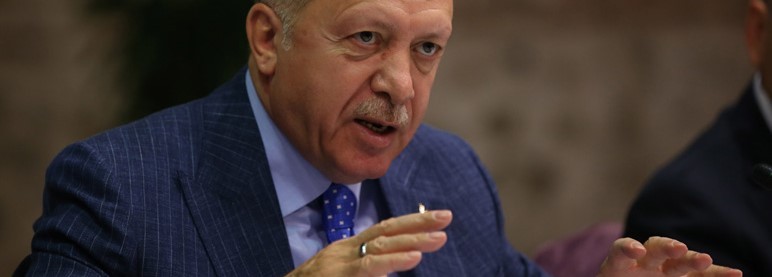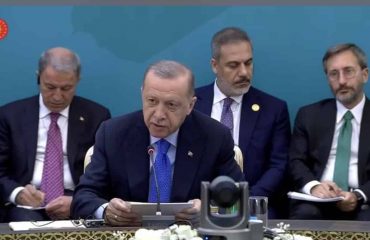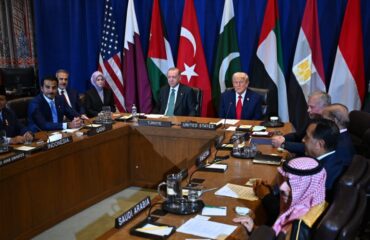
On October 13, as Turkish President Tayyip Erdoğan recounted all of the common doubts regarding Turkey’s military campaign in Syria, he put the fight against ISIS on the top of the list. Whether the “Peace Spring” operation targeted the Kurdish population or the militant groups linked to the outlawed Kurdistan Workers’ Party (PKK) came second. Finally, he mentioned the speculations on Turkey’s potential calculations about the Syrian territory it would take away from the YPG/PKK control. The order in this list is correct: most criticism directed towards Turkey tends to focus on the consequences if ISIS militants are released.
This recent statement echoed Erdoğan’s speech to his Justice and Development Party’s (AKP) regional chairs, delivered two days ago. But the point was made more obvious: Turkey, Erdoğan said, “is ready to take on all kinds of responsibility regarding the DAESH militants in Syria”. This assertion was a response to U.S. President Donald Trump’s claim that Turkey was now accountable for the ISIS militants in Syria.
Although, sources told YetkinReport that Turkish officials conveyed to American counterparts that Turkey was only responsible for the current operation area of 120 km long and 30 km deep, Erdoğan’s words show that Ankara understood the gravity of the situation sooner rather than later.
ISIS is a serious concern
The West especially had coined the ISIS militants detained in Syrian camps and, in some cases, their families “foreign terrorist fighters” – until very recently. Among these ISIS militants were European Union (EU) citizens holding German, French and English passports, as well as Russian, Chinese and, of course, also Turkish nationals. The concern was that these militants, once released, would go back to their countries of origin and take terrorist action there. Indeed, Russian head-of-state Vladimir Putin joined the lot by expressing his worries concerning ISIS, saying he was “unsure of what Ankara would do”.
This week marked the fourth year of the Ankara massacre where two ISIS suicide bombers killed 103 people and 500 wounded, on October 10, 2015. It is imperative to emphasise that the ISIS danger also affects Turkey.
As part of the agreement they made with the U.S. following their conflict in Kobane (Ayn al-Arab) in 2014, the YPG/PKK had undertaken the guarding and security of the ISIS detention camps. Yet it was once the Turkish troops launched their campaign that the Americans troops evicted the site, stating that they “will remain focused on the safety of its men and women in uniform”. They anticipated that U.S. President Donald Trump would blame Turkey for this situation: that’s what happened. Finally, we even heard it from NATO Secretary-General Jens Stoltenberg.
A pressing need for concrete examples
Erdoğan sees the urgency in the warnings about ISIS: that is a significant improvement. Some details emerged about how Turkey will deal with the situation. Reportedly, Turkey will detain the ISIS militants held in the YPG camps and the ones who and arrive at the Peace Spring control; it will be accountable if they cannot send them back to their countries of origin; the wives and children will go to rehabilitation programs.
However, evoking how many ISIS militants were “neutralized” in the 2016 Jarabulus (Euphrates Shield) operation (which gave much harm to ISIS) might not change perceptions in politics today.
That’s why Turkey urgently needs concrete examples of fighting against ISIS if Erdoğan is to prove the point he made in his October 13 speech. The Turkish Armed Forces must demonstrate that this operation is also against the terrorism of ISIS. Such a proof would alleviate the toll on Trump against Congress, would ease the political pressure on the government, and deter the ISIS threat looming over Turkey.


